Construction industry struggles to reduce inter-floor noise with new technology
입력 2024.11.25 (00:22)
읽어주기 기능은 크롬기반의
브라우저에서만 사용하실 수 있습니다.
[Anchor]
Conflicts between neighbors over apartment noise issues sometimes escalate into serious incidents.
To address the problem of noise between floors, the construction industry is also developing new technologies.
A 'Level 1' noise reduction technology has been developed, which allows a 3kg ball dropped from above to make almost no sound.
Reporter Choi Kwang-ho has the story.
[Report]
This is a newly established noise experiment facility in Sejong City.
Even when people are running on a treadmill above or dropping a 3kg ball on the floor, there is hardly any sound heard downstairs.
This is due to the application of Level 1 noise reduction technology, which maintains noise levels below 37dB, equivalent to that of a library.
The difference is clear compared to the existing Level 4 noise reduction technology applied in current apartments.
To achieve Level 1 noise reduction, the floor has been thickened to 4cm, and new materials such as high-density mortar and cushioning materials have been used.
A technology that detects and records noise levels to reduce frequency has also been introduced.
["Noise levels have exceeded the standard."]
[Jeong Seung-ho/LH Smart Housing Technology Team Leader: "In a pilot application at the newlywed hope town in Gwacheon, we confirmed that the frequency of noise occurrence notifications decreased over time."]
Private companies are also taking action.
One company received Level 1 noise reduction certification this year by applying soundproofing materials to a patented floor structure.
Another company's ceiling soundproofing structure can also be applied to existing apartments, which is an advantage.
The impact of strengthened regulations, such as the revised housing law that requires informing prospective residents of noise inspection results, has been felt this year.
However, the increase in costs associated with applying new technologies is a burden.
In the case of LH technology, an additional construction cost of 3 million won per 59㎡ is required.
[Jeong Woon-seop/Head of LH Smart Construction Division: "The portion that is passed on to the sale price leads to a burden on the public, so we are looking for ways to offset it through cost reduction as much as possible."]
LH plans to apply the newly developed Level 1 noise reduction standards starting from next year's housing designs.
This is KBS News, Choi Kwang-ho.
Conflicts between neighbors over apartment noise issues sometimes escalate into serious incidents.
To address the problem of noise between floors, the construction industry is also developing new technologies.
A 'Level 1' noise reduction technology has been developed, which allows a 3kg ball dropped from above to make almost no sound.
Reporter Choi Kwang-ho has the story.
[Report]
This is a newly established noise experiment facility in Sejong City.
Even when people are running on a treadmill above or dropping a 3kg ball on the floor, there is hardly any sound heard downstairs.
This is due to the application of Level 1 noise reduction technology, which maintains noise levels below 37dB, equivalent to that of a library.
The difference is clear compared to the existing Level 4 noise reduction technology applied in current apartments.
To achieve Level 1 noise reduction, the floor has been thickened to 4cm, and new materials such as high-density mortar and cushioning materials have been used.
A technology that detects and records noise levels to reduce frequency has also been introduced.
["Noise levels have exceeded the standard."]
[Jeong Seung-ho/LH Smart Housing Technology Team Leader: "In a pilot application at the newlywed hope town in Gwacheon, we confirmed that the frequency of noise occurrence notifications decreased over time."]
Private companies are also taking action.
One company received Level 1 noise reduction certification this year by applying soundproofing materials to a patented floor structure.
Another company's ceiling soundproofing structure can also be applied to existing apartments, which is an advantage.
The impact of strengthened regulations, such as the revised housing law that requires informing prospective residents of noise inspection results, has been felt this year.
However, the increase in costs associated with applying new technologies is a burden.
In the case of LH technology, an additional construction cost of 3 million won per 59㎡ is required.
[Jeong Woon-seop/Head of LH Smart Construction Division: "The portion that is passed on to the sale price leads to a burden on the public, so we are looking for ways to offset it through cost reduction as much as possible."]
LH plans to apply the newly developed Level 1 noise reduction standards starting from next year's housing designs.
This is KBS News, Choi Kwang-ho.
■ 제보하기
▷ 카카오톡 : 'KBS제보' 검색, 채널 추가
▷ 전화 : 02-781-1234, 4444
▷ 이메일 : kbs1234@kbs.co.kr
▷ 유튜브, 네이버, 카카오에서도 KBS뉴스를 구독해주세요!
- Construction industry struggles to reduce inter-floor noise with new technology
-
- 입력 2024-11-25 00:22:34
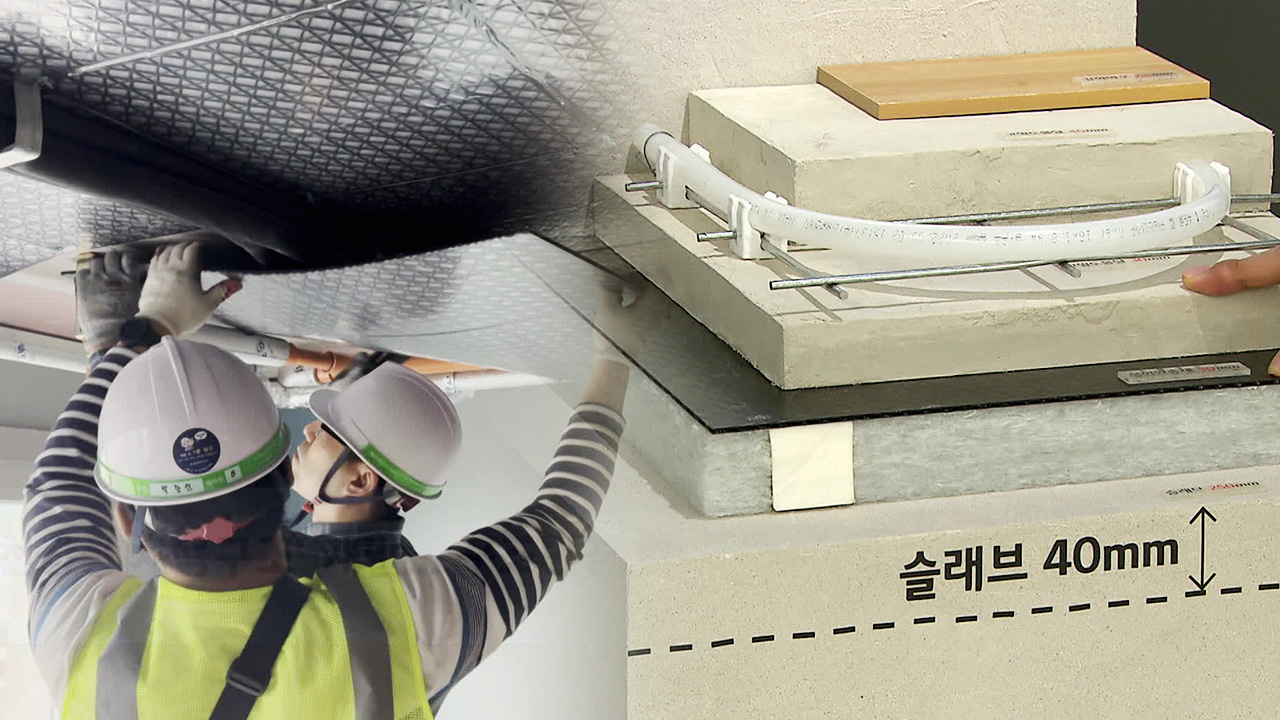
[Anchor]
Conflicts between neighbors over apartment noise issues sometimes escalate into serious incidents.
To address the problem of noise between floors, the construction industry is also developing new technologies.
A 'Level 1' noise reduction technology has been developed, which allows a 3kg ball dropped from above to make almost no sound.
Reporter Choi Kwang-ho has the story.
[Report]
This is a newly established noise experiment facility in Sejong City.
Even when people are running on a treadmill above or dropping a 3kg ball on the floor, there is hardly any sound heard downstairs.
This is due to the application of Level 1 noise reduction technology, which maintains noise levels below 37dB, equivalent to that of a library.
The difference is clear compared to the existing Level 4 noise reduction technology applied in current apartments.
To achieve Level 1 noise reduction, the floor has been thickened to 4cm, and new materials such as high-density mortar and cushioning materials have been used.
A technology that detects and records noise levels to reduce frequency has also been introduced.
["Noise levels have exceeded the standard."]
[Jeong Seung-ho/LH Smart Housing Technology Team Leader: "In a pilot application at the newlywed hope town in Gwacheon, we confirmed that the frequency of noise occurrence notifications decreased over time."]
Private companies are also taking action.
One company received Level 1 noise reduction certification this year by applying soundproofing materials to a patented floor structure.
Another company's ceiling soundproofing structure can also be applied to existing apartments, which is an advantage.
The impact of strengthened regulations, such as the revised housing law that requires informing prospective residents of noise inspection results, has been felt this year.
However, the increase in costs associated with applying new technologies is a burden.
In the case of LH technology, an additional construction cost of 3 million won per 59㎡ is required.
[Jeong Woon-seop/Head of LH Smart Construction Division: "The portion that is passed on to the sale price leads to a burden on the public, so we are looking for ways to offset it through cost reduction as much as possible."]
LH plans to apply the newly developed Level 1 noise reduction standards starting from next year's housing designs.
This is KBS News, Choi Kwang-ho.
Conflicts between neighbors over apartment noise issues sometimes escalate into serious incidents.
To address the problem of noise between floors, the construction industry is also developing new technologies.
A 'Level 1' noise reduction technology has been developed, which allows a 3kg ball dropped from above to make almost no sound.
Reporter Choi Kwang-ho has the story.
[Report]
This is a newly established noise experiment facility in Sejong City.
Even when people are running on a treadmill above or dropping a 3kg ball on the floor, there is hardly any sound heard downstairs.
This is due to the application of Level 1 noise reduction technology, which maintains noise levels below 37dB, equivalent to that of a library.
The difference is clear compared to the existing Level 4 noise reduction technology applied in current apartments.
To achieve Level 1 noise reduction, the floor has been thickened to 4cm, and new materials such as high-density mortar and cushioning materials have been used.
A technology that detects and records noise levels to reduce frequency has also been introduced.
["Noise levels have exceeded the standard."]
[Jeong Seung-ho/LH Smart Housing Technology Team Leader: "In a pilot application at the newlywed hope town in Gwacheon, we confirmed that the frequency of noise occurrence notifications decreased over time."]
Private companies are also taking action.
One company received Level 1 noise reduction certification this year by applying soundproofing materials to a patented floor structure.
Another company's ceiling soundproofing structure can also be applied to existing apartments, which is an advantage.
The impact of strengthened regulations, such as the revised housing law that requires informing prospective residents of noise inspection results, has been felt this year.
However, the increase in costs associated with applying new technologies is a burden.
In the case of LH technology, an additional construction cost of 3 million won per 59㎡ is required.
[Jeong Woon-seop/Head of LH Smart Construction Division: "The portion that is passed on to the sale price leads to a burden on the public, so we are looking for ways to offset it through cost reduction as much as possible."]
LH plans to apply the newly developed Level 1 noise reduction standards starting from next year's housing designs.
This is KBS News, Choi Kwang-ho.
-
-

최광호 기자 peace@kbs.co.kr
최광호 기자의 기사 모음
-
이 기사가 좋으셨다면
-
좋아요
0
-
응원해요
0
-
후속 원해요
0










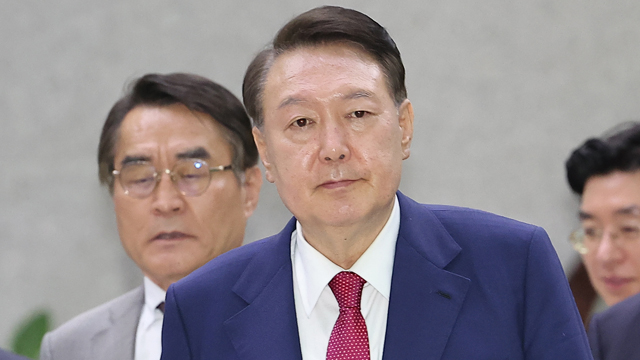
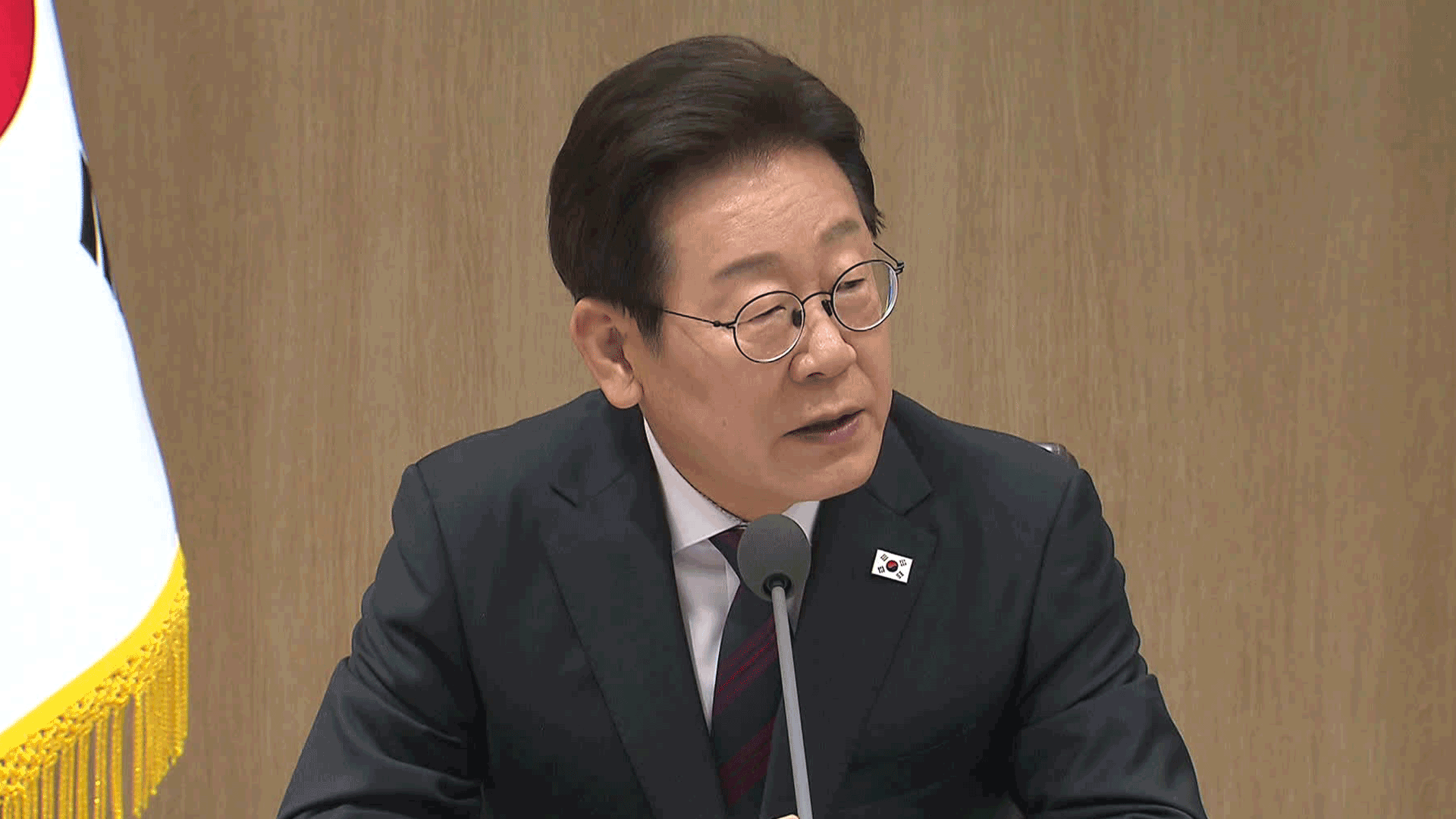
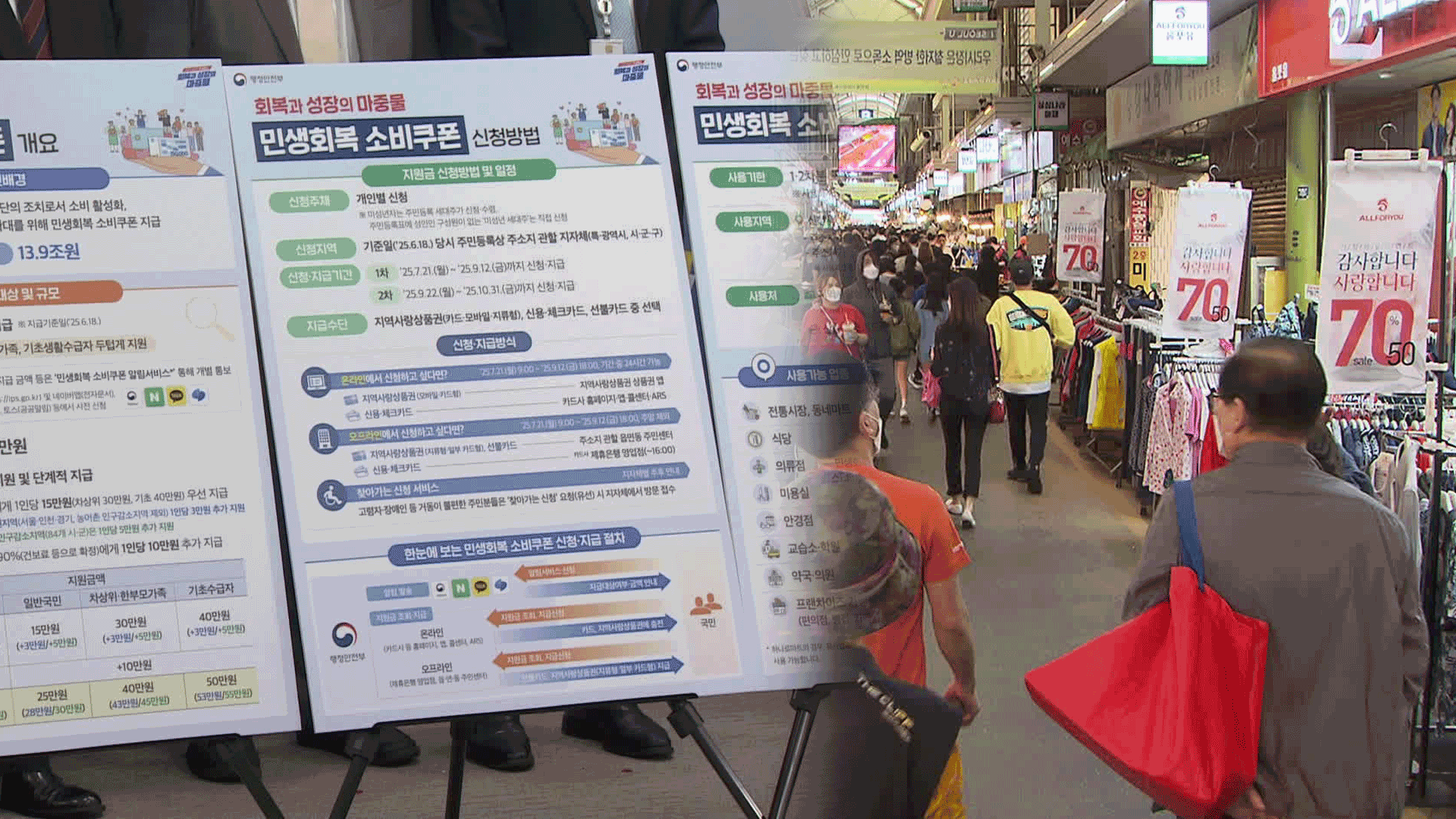
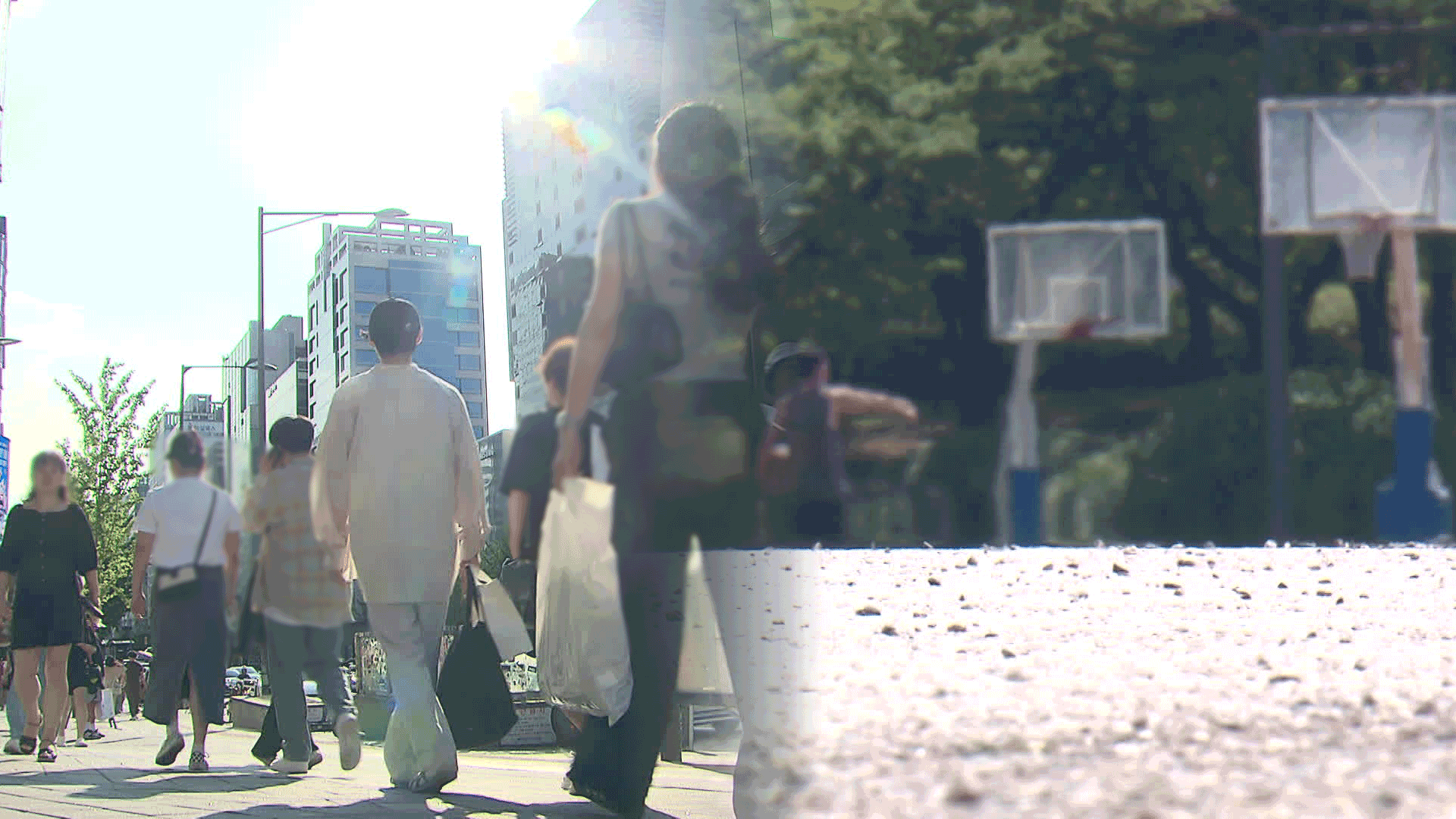

이 기사에 대한 의견을 남겨주세요.